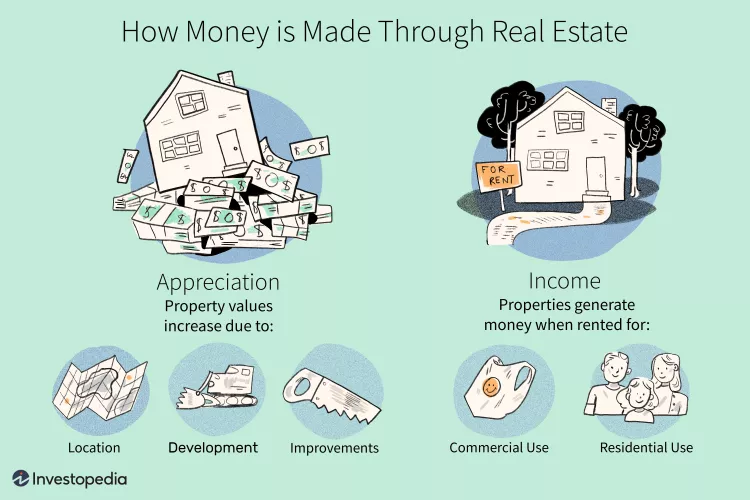We are currently in a seller’s market. Real estate investments are at an all-time high. Inventory is low, and investors like Steven Taylor Los Angeles are driven to find investments that will generate cash flow. Television shows about fixer-upper homes are inspiring people all over the country to begin making real estate investments of their own, which is helping to drive the market upwards. What strategies can be implemented to help with market conditions for buyers?
Apartment Redevelopment in Metropolitan Areas
Apartment redevelopment is hot in every major city today. Developers buy old and busted apartment buildings at a low cost, and investors like Steven Taylor LA often get involved in renovating them into something new and beautiful.
This is beneficial to the community because it adds much-needed inventory to the housing market. The housing market is currently so high because there is a low supply of inventory.
City Planning and Development to Accommodate Growth
As the pollution grows, the surrounding areas naturally expand. At this point, city planners and councils often meet to devise a plan for expansion.
Many elements and moving parts are involved, so expansion projects often take years to implement. This also happens in smaller towns when their population outgrows the infrastructure.
Understand the Real Estate Market’s Current Conditions
The consumer drives the market. The best way to improve the market is for individuals to understand the market conditions and make wise decisions that will have the best possible impact on their lives. People can make the best decisions for themselves when they do research on their area of residence.
Taking A Look at Affordable Housing
One of the biggest issues affecting the real estate industry right now is housing affordability, especially in metropolitan areas. Many potential purchasers are priced out of the market as house prices rise. Market activity may become stagnant due to the disparity between home costs and income levels. Governments, property developers, and legislators must take into account the following strategies in order to address this issue:
Subsidies and Tax Incentives: To increase the accessibility of homeownership, governments might provide subsidies to individuals with low to moderate incomes. Tax rebates for first-time homebuyers or developers of affordable housing developments may boost demand in the market.
Increasing the Supply of Affordable Housing: Public-private partnerships, mixed-use buildings, and a laxer zoning code can all help address the scarcity of affordable housing. Streamlining the building permit procedure can also accelerate the construction of new dwellings.
Rent Control Policies: Rent control policies can stop excessive rent increases in places where owning is not practical, guaranteeing that people have access to dependable and reasonably priced rental housing. Though it might be a contentious issue, rent control can support the preservation of market equilibrium in the rental market if properly implemented and supervised.
Increasing Access to Mortgages
Mortgage funding must be easily accessible to boost demand in the real estate industry. Tight mortgage terms or a lack of financing choices discourage many prospective purchasers. Enhancing the availability of mortgages can stimulate the market and encourage house purchases.
Reducing Interest Rates: High interest rates discourage potential homebuyers because they make mortgage payments more costly. To encourage buyers to enter the market, central banks and financial institutions might cooperate to change interest rates so that mortgages are more accessible.
Flexible Mortgage Products: Lenders might develop more flexible mortgage products to cater to a variety of buyer characteristics. Offering low down payment alternatives, longer loan terms, or loans intended for self-employed people can increase the pool of qualified purchasers.
Improving Openness in Real Estate
Since real estate deals are sometimes opaque, investors and buyers may be discouraged from entering the market. Enhancing market transparency may draw in more players and boost trust, creating a more stable and healthy environment for the market.
Digitalization of Real Estate Processes: Technology helps increase transparency in real estate transactions. For example, blockchain technology may produce an unchangeable property ownership ledger, decreasing fraud and boosting record transparency. Using digital platforms for property listings, contract management, and payment processing may streamline the process of purchasing and selling real estate.
Improved Data Availability: Buyers and sellers may make better judgments if they have access to thorough real estate data, including property pricing, sales history, and market trends. Governments and private real estate platforms should make more market data available to the public.
Promoting Foreign Real Estate Investment
The real estate industry may greatly benefit from large cash infusions from outside investors, which can spur expansion and stabilize prices. However, to ensure that locals can still afford properties, a balance must be struck between luring in international purchasers and ensuring that locals can still afford properties.
Simplified overseas Investment Procedures: Reducing the obstacles to international real estate purchases in a nation can draw in more overseas purchasers. Foreign investor tax breaks and clear regulations can stimulate market activity without overpowering the domestic market.
Managing Speculative Investment: Although foreign investment has its advantages, speculative investments that include the purchase of unoccupied properties have the potential to skew market values and reduce the supply of available homes. Governments can enact laws to discourage these kinds of actions, such as vacancy fees on properties that remain vacant for protracted periods.
Reducing Property Cycles
Although real estate markets are naturally cyclical, there are ways to lessen the risk of market instability caused by boom-bust cycles.
Monetary Policy Modifications: By modifying interest rates and controlling credit availability, central banks can lessen the impact of real estate cycles. Reducing interest rates and supplying liquidity during recessions can boost demand and avert protracted market declines.
Public Infrastructure Investment: Government expenditures on infrastructure, such as parks, schools, and transportation, can boost local real estate markets by increasing the desirability of particular places for development. Additionally, jobs generated by infrastructure projects contribute to the growth of regional economies and the housing market.
Conclusion
Have a basic understanding of the economy at a national level as well as the local level. This includes trends like supply and demand. Find the data on median home prices in the area. If you have ever considered living in a different location, compare that data against your current location.
Real estate is considered a high-risk investment for a reason. The housing market is always in flux. Historically, it has gone up and down over time, accounting for inflation.
Right now, it is very high. It may continue to grow, or it may drop. Economists’ opinions are split on the subject. There is no way to know what will happen next, but people can still do their best to make a positive impact in their communities regarding market conditions.

